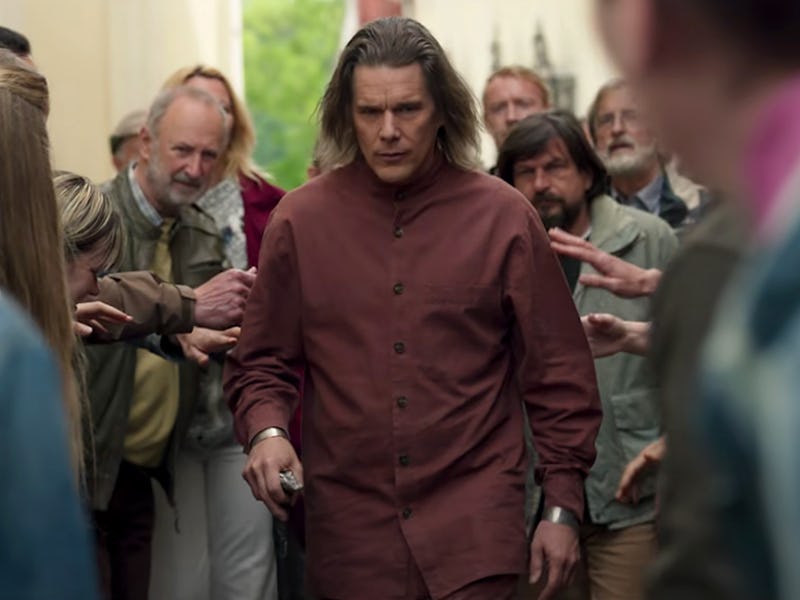Moon Knight Episode 2 proves Marvel is still addicted to one type of villain
Why can’t evil people be evil?

Marvel stories are getting more and more complex, and the days where a superhero movie could just be about a hero facing a threat who wants to see them dead are long gone. Now the latest Marvel projects are about the fate of Earth itself, whether as an incubator for a Celestial or having half its population Snapped away. Every villain now has their own plan for conquering the Earth, and it’s never just “because I want to.”
Moon Knight is no exception, as Ethan Hawke’s Arthur Harrow is a conniving cult leader who wants to create a utopia of truly good people. While this sounds like great fodder for a fully fleshed out villain, it points to a tedious pattern in the Marvel Cinematic Universe.
There’s something to be said for a villain with a righteous mission. The Flag-Smashers wanted rights for those displaced by the Blip, Echo wanted to avenge her father, Killmonger wanted to enforce his claim to the throne. Even Thanos thought he was saving Earth from overpopulation.
But a sympathetic villain is difficult to balance. Their reasons for acting need to be believable, but go too far and you’ll end up with a r/ThanosDidNothingWrong situation.
WHAT’S YOUR FAVORITE TIME-TRAVEL MOVIE? Click here to help us rank all the ones on Netflix.
Thanos’ supposedly sympathetic status was poked at in Hawkeye.
Now, with Arthur Harrow, Moon Knight is only underlining how tempting a utopian idealist villain can be. Harrow never mentions Thanos, but there’s a clear parallel between the two. Both think only a portion of the world deserves saving, but while Thanos believes the fairest way is to randomly split the population in half, Harrow takes a merit-based approach.
We see the judging process in Episode 1, when Harrow judges his cult members on the sum of their actions both past and present. In Episode 2 we see the benefits received by those who pass the test: A paradise of humanity, education, and VR headsets.
Thanos was the ultimate in “villain who’s the hero of their own story.”
To the untrained eye, it looks great. That’s good for Moon Knight, but not the MCU at large, because there are no more Marvel villains who want to simply become the ruler of the world. Villains always need to be the heroes of their own story, but their reasoning doesn’t always need to be “I think I could make the world better.” Sometimes it should be as simple as “I think I deserve to rule the world because I like power.”
As MCU movies get more complicated, the line between hero and villain continues to blur. And while that’s interesting, it’s veering from the comic book legacy the franchise prides itself on. There’s nothing wrong with a nuanced villain, but there’s nothing wrong with a straightforward one either. If every villain is complicated for the same reason, the franchise ironically starts to look a little simple.
Hopefully the MCU can eventually create a truly villainous villain that will make the others look like saints in comparison. But for now, Arthur Harrow will continue the long examination about what defines a hero and a villain.
Moon Knight is now streaming on Disney+.